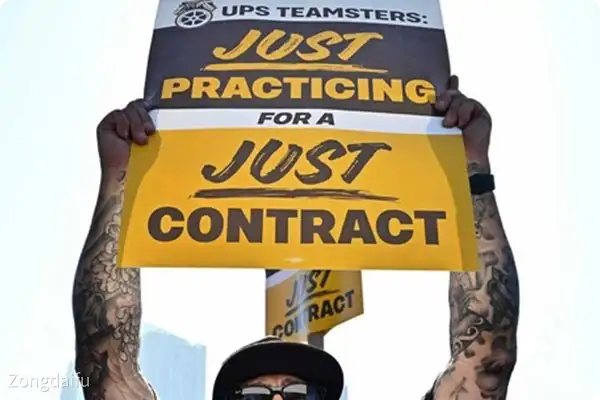UPS unions are struggling to raise part-time wages and have called on workers to strike. International Truck Drivers Brotherhood Chairman Sean OBrien said in a live broadcast on July 16 to union members that if a new agreement cannot be reached before the July 31 contract expires, the unions will start strike on August 1.
OBrien said he has been in contact with the White House several times and he has asked the White House not to intervene in this possible strike. he stressed that the White House should care about American companies, as these companies are earning huge profits from the hard work of their union members.
Under the emergency provisions of the Taft-Hatley Act, the U.S. President could intervene in the strike, as former President Jimmy Carter did in the 1978 miners’ strike, but last year, while President Biden and Congress successfully stopped the strike of railway workers through intervention, it was under the Railway Labor Act that the bill did not apply to UPS workers.
OBrien noted that if a temporary agreement could be reached between the two sides, the truck drivers unions would continue to perform their duties until the new agreement is approved, a process that could take about three weeks. If no agreement could be reached, approximately 34,000 UPS employees would begin a strike on August 1.
According to U.S. think tank AEG estimates, if UPS truck drivers strike for ten days, it could result in economic losses of as much as $7 billion, which would be one of the most expensive strikes in a century.
The strike could have a significant impact on logistics and supply chains, the economy and labor relationships. If the strike lasts longer or has a large impact, it may require government and political leaders to intervene. All of these factors need to be closely monitored and appropriate response.



 Follow customer service WeChat
Follow customer service WeChat